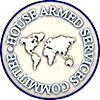


|
| For
Immediate Release: February 25, 2004 |
Contact: |
Harald Stavenas |
OPENING STATEMENT OF
CHAIRMAN MCHUGH
Total Force Subcommittee Hearing
Force Health Protection and Surveillance in
the Global War on Terrorism
The Subcommittee on Total Force meets this afternoon to assess force health protection and surveillance efforts for service members in support of the global war on terrorism. I want to welcome our witnesses and I look forward to their testimony.
After the Gulf War, some veterans began to experience debilitating illnesses that could not be explained. With increasing concern about health problems in veterans, numerous activities were initiated to investigate veteran illnesses. When attempts were made to compile information on health status, medical care, troop locations, and environmental hazard during deployments, the Department of Defense simply came up short.
We cannot let this happen again. It is our responsibility and duty to ensure the health and well-being of our forces as they now deploy to extremely dangerous locations. Our service men and women and their loved ones must be confident that they are receiving the best opportunities for good health.
Since the events of September 11, 2001, this country has seen hundreds of thousands service men and women deploy in support of Operation Enduring Freedom and Operation Iraqi Freedom. In light of the number of recent and upcoming deployments and redeployments, it is appropriate to take stock of the effectiveness of the various force health protection laws, policies, and programs to ensure health risks are being identified and service members are receiving the care the need.
In November 1997, Congress adopted legislation, Public Law 105-85 that established a system for assessing health status before and after deployments and centralized retention of information related to deployments. To provide oversight for force health protection efforts, Congress requested that GAO examine DOD's compliance with the requirements of the law. The findings of the GAO report were abysmal and were addressed by this subcommittee in a hearing last March, as well as by other congressional committees over the last year.
Today we will have the opportunity to examine DOD's progress in providing compliance with the law how it is implementing effective force health protection programs.
In addition to this objective, the subcommittee seeks to understand the present and emerging health concerns for those deployed in support of the war on terrorism. We will have the opportunity to review the status of the smallpox and anthrax vaccine programs, the challenges associated with caring for combat casualties, and how service members are being protected from environmental hazards and infectious diseases.
The nature of warfare that we are seeing in OEF and OIF brings new challenges to force health protection. The traumatic events and stressors associated with fighting terrorism are ever present in this war. Vigilance in the effective management of a full range of post-traumatic stress reactions must be a top priority and the subcommittee looks forward to both the DOD and VA perspectives.
This subcommittee is also interested in understanding the factors that led to the increase in service member suicides in July 2003 in Iraq and how DOD is currently positioned to prevent suicides not only in theater but back at home stations. In October 2003 an Army Mental Health Advisory Team went to Iraq and Kuwait to assess the events that led to the suicides and to examine behavioral healthcare in theater. The subcommittee is interested in what the team learned during its review and how any recommendations have been implemented.
Finally, as veterans move into the VA healthcare system, the transition must be seamless to ensure the highest quality of care. The DOD and VA have met many challenges in this respect over the last year and we look forward to your testimony regarding your progress.
Before I turn to the subcommittee's Ranking Democrat, Dr. Snyder, I would like to thank all the witnesses for the commitment they have shown as they do their part to fight or support the war against terrorism. I especially want to acknowledge the service of two soldiers who are with us today from Walter Reed Army Medical Center. Corporal Victor Thibeault, a witness on our first panel, who is a 10th Mountain Division soldier who fought the war in Afghanistan and made great sacrifices for this country. Also, seated in the audience is Staff Sergeant Maurice Craft - an 82nd Airborne Division air defense artillery soldier who served in Iraq and was severely injured by an explosive device while on patrol. You and your comrades in arms have the highest respect and appreciation from this subcommittee.
###
2120 Rayburn House Office Building
Washington, D.C. 20515
|
NEWSLETTER
|
| Join the GlobalSecurity.org mailing list |
|
|
|

